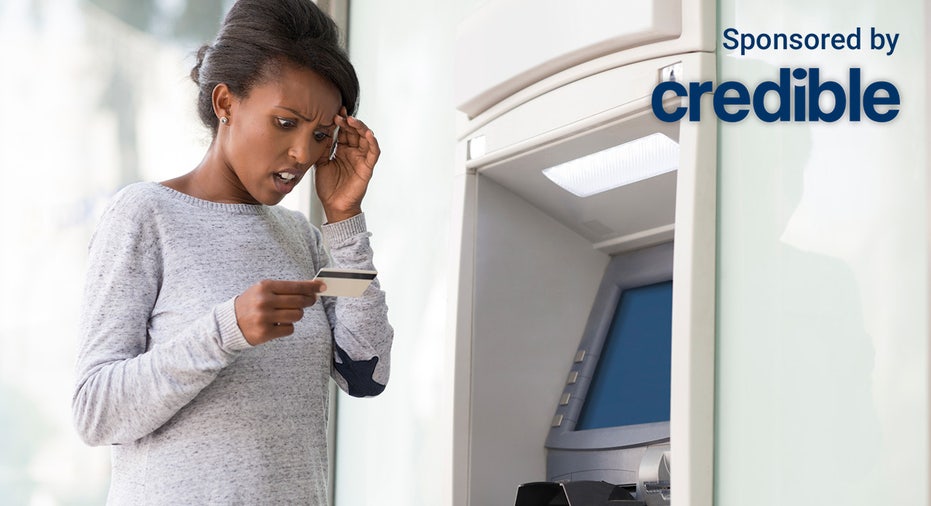Legislators support bank-led end to overdraft fees
As banks begin eliminating overdraft fees, Congress is considering a universal end to the charges

Legislators voiced their support in a recent hearing for a bank-led end to overdraft fees. (iStock)
Over the past few months, banks have been decreasing or eliminating their overdraft and non-sufficient funds (NSF) fees, a move that leaders in Washington are now encouraging.
Bank of America, Capital One and Citibank are among those that have either eliminated or reduced these fees and have also implemented balance alerts for credit and debit card transactions to let consumers know when their available balance falls below a certain amount.
"In response to the uncertainty brought on our nation by the pandemic, many banks moved to waive fees charged to their customers," Sen. Raphael Warnock, D-Ga., said at a recent hearing before the House Financial Services Committee. "And I want to applaud those banks for making the right choice to help communities.
"Some of these same banks have now voluntarily made these changes permanent. And every month, to their credit, we hear of more following their peers in doing the same," he said.
In fact, lawmakers from both sides of the aisle shared similar sentiments, saying banks are providing Americans with unprecedented levels of choice.
"The American financial services system continues to provide unprecedented levels of consumer choice, and they are increasing every day," Sen. Thom Tillis, R-N.C., said. "Some financial institutions have moved to eliminate overdraft fees. Others have drastically reduced fees associated with utilizing the service or increased overdraft coverage. What is abundantly clear across the board is that these institutions have taken these actions without the need for overarching or burdensome government regulation."
If you have racked up debt from overdraft fees, you could consider taking out a personal loan to help you pay it down. Visit Credible to find your personalized interest rate without affecting your credit score.
CFPB takes a closer look at overdraft fees
The Consumer Financial Protection Bureau (CFPB) has been increasingly looking into NSF and overdraft fees. The CFPB released a report in December on its investigation of the fees, showing that banks have become increasingly reliant on them and NSF for revenue.
"Unfortunately, switching bank accounts isn’t easy. It involves new account numbers, new debit cards, updating direct deposit, updating auto-debits, and much more," CFPB Director Rohit Chopra said on a press call in December. "If America can shift to an open banking infrastructure, it will be harder for banks to trap customers into an account for the purpose of fee harvesting."
At the recent Financial Services Committee hearing, Chopra said that Americans are benefiting from the competitive market which he said is "one of the beauties of a competitive market."
"Several U.S. banks […] have begun reforming their overdraft programs and making them more pro-consumer," Acting Comptroller of the Currency Michael Hsu said in a recent op-ed for American Banker. "This development holds the promise of relieving millions of deserving people from the high cost of making ends meet while empowering them and improving their overall financial health."
If you are struggling with debt from overdraft fees, you could consider paying it down using a personal loan. Visit Credible to compare multiple personal loan lenders at once and choose the one with the best interest rate for you.
CAPITAL ONE ELIMINATES OVERDRAFT FEES, CFPB INVESTIGATES UNIVERSALLY ENDING THESE ‘ABUSIVE’ CHARGES
Consumer debt on the rise
The latest study from the New York Federal Reserve said consumer debt is increasing, having risen by $266 billion in the first quarter of 2022 alone. This 1.7% increase brought total consumer debt to $15.84 trillion in the first quarter.
"The first quarter of 2022 saw an increase in mortgage and auto loan balances coupled with a typical seasonal decrease in credit card balances," Andrew Haughwout, the New York Fed's director of the Household and Public Policy Research Division, said. "However, mortgage originations declined from the historically high volumes seen in 2021, reflecting an unwinding in the demand for refinances."
If you have outstanding debt, a personal loan could help you pay it down. To see if this is the right option for you, contact Credible to speak to a personal loan expert and get all of your questions answered.
Have a finance-related question, but don't know who to ask? Email The Credible Money Expert at moneyexpert@credible.com and your question might be answered by Credible in our Money Expert column.




















